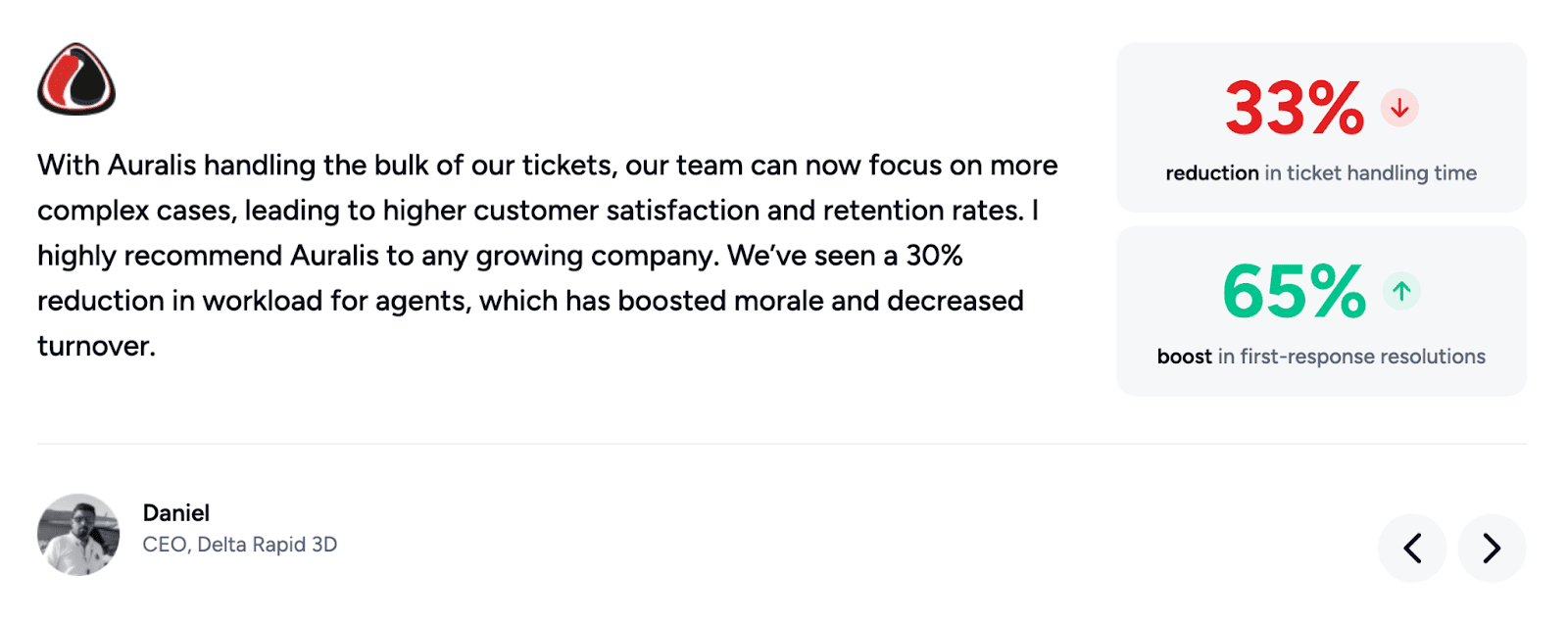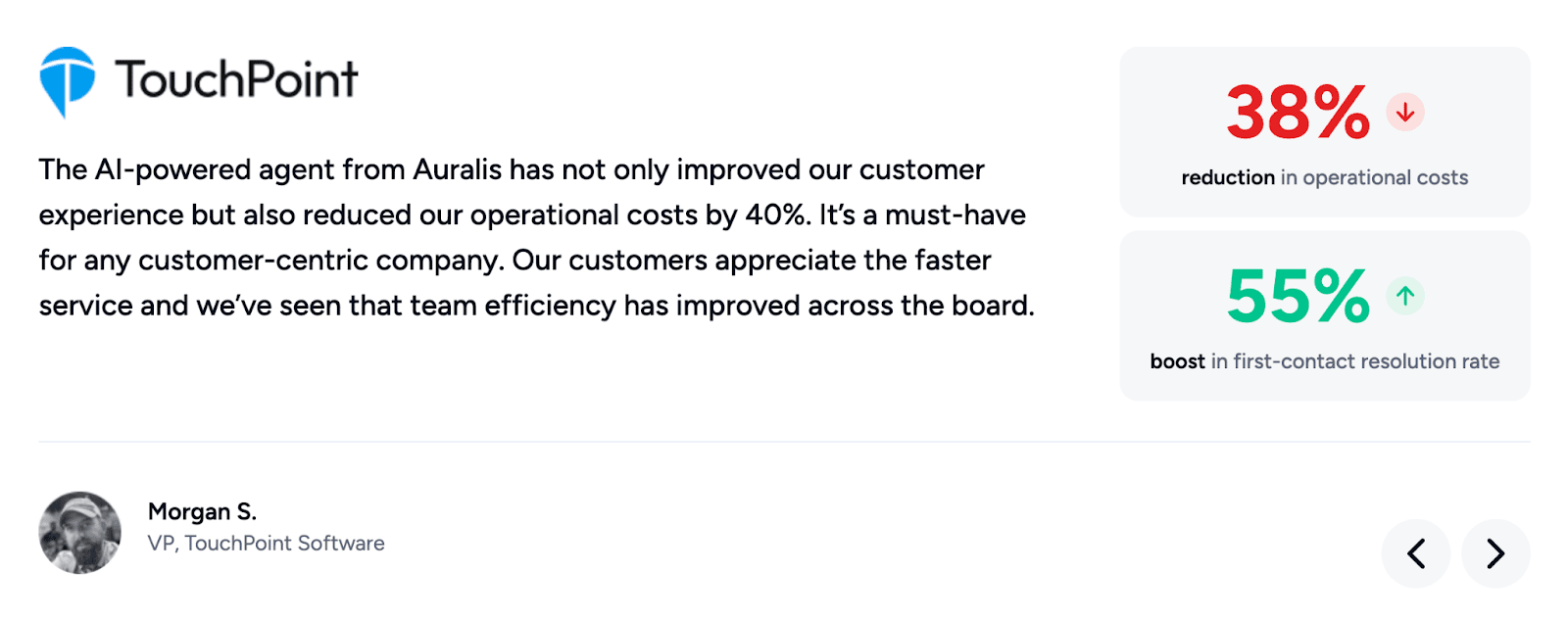Consumer attention is decreasing by the day and businesses need to seek innovative ways to keep them engaged. While chatbots have been pretty effective at engaging consumer interest and gathering their requirements, rule-based conversations have reached their plateau.
As consumers look for more personalized conversations with businesses, we’re noticing businesses explore conversational AI chatbots instead. From providing timely, relevant and personalized interactions, here’s how conversational AI chatbots are helping boost customer engagement.
Table of Contents
What are conversational AI chatbots?
Conversational AI chatbots are software systems that use artificial intelligence, natural language processing, and machine learning to understand the context of ongoing interactions.
Unlike traditional chatbots that are rule-based, these chatbots are able to understand the context and intent in conversations to respond with more personalized messages. They make the entire interaction more human-like, keeping the consumers engaged for a longer period of time – and giving businesses the ability to gather more information about their needs, preferences and pain points.

Traditional chatbots vs conversational AI chatbots
Here’s a quick overview of the difference between the two types of chatbots to give you more context:
| Aspect | Traditional Chatbots | Conversational AI Chatbots |
| Technology | Rule-based, using predefined scripts and workflows | Powered by AI, Natural Language Processing (NLP), and Machine Learning (ML) |
| Understanding User Input | Limited to specific keywords or commands | Can understand and process natural language, context, and intent |
| Flexibility | Rigid; cannot handle conversations beyond pre-set rules | Adaptive; can manage complex, ambiguous, and varied queries |
| Learning Capability | No learning capability; does not improve over time | Learns from interactions, improving responses over time |
| Personalization | Limited or no personalization | Offers personalized responses based on user preferences and past interactions |
| Response Scope | Narrow, with limited and often scripted responses | Wide, with dynamic, human-like conversations and varied responses |
| Scalability | Harder to scale due to rule complexity | Easily scalable to handle more interactions without quality loss |
| Platform Compatibility | Often restricted to specific platforms | Multi-platform compatibility, including voice and messaging apps |
| Use Cases | FAQ handling and basic task automation | Broader use cases, including complex problem solving, personalized recommendations, and customer engagement |
| Adaptability | Cannot adapt to new queries or changes in context | Can adapt to different contexts and user inputs in real-time |
| Customer Experience | Rigid, transactional, and less engaging | Conversational, interactive, and more human-like |
What are the benefits of conversational AI chatbots?
Here are some of the benefits of using conversational AI for your chatbots with Auralis:
1. Improved personalization
Conversational AI chatbots can analyze customer data in real-time and tally it with previous interactions to personalize responses. These chatbots can tailor recommendations, product suggestions and even the preferred way of guiding a consumer to query resolution based on past behavior. This helps make the interactional more engaging and delivers a greater customer experience.
2. 24/7 availability
A common advantage of all types of chatbots is their ability to offer 24/7 customer support. Whether it’s handling queries, guiding users through troubleshooting or offering product recommendations, custom chatbot workflows on solutions like Auralis AI can handle it all. This also helps reduce the first response time, leading to a positive brand perception.

3. Faster response and resolution time
Conversational AI chatbots can provide instant responses to queries, leading them to resolution faster. They can integrate with your knowledge base, CRM, and other data sets to pull in information in real time to handle conversations with more context. This helps not just resolve issues faster but also frees up the time of human agents to address more complex queries.
Also read: How AI co-pilots boost customer support efficiency
4. Cost efficiency
Conversational AI chatbots reduce the need for large customer service teams. With almost 70% of customer support queries automated, solutions like Auralis AI can lower the operational costs for businesses without compromising on the assistance and experience offered.

5. Scalability
The demand for customer support increases as your business grows and creates multiple touchpoints. Conversational AI chatbots can be easily scaled to handle higher volumes of interactions without compromising on the quality of conversations. This can be especially handy during peak seasons.
Also read: How to automate repetitive support tasks with custom AI agents
6. Data collection and insights
Conversational AI chatbots make the interaction less robotic. The human-like, personalized engagement creates a flow of conversation wherein businesses can gather more information about the customer. This includes their preferences, pain points, and behavior that can impact purchases with the business.
Different use cases of conversational AI chatbots
Let’s take a look at different ways in which conversational AI chatbots can be used across industries:
- Ecommerce – Conversational AI chatbots can assist shoppers in finding the right products or variants, make product recommendations, help with order tracking, returns, refunds or exchanges. They can act as virtual assistants that help find the right product faster!
- Banking and finance – From onboarding new customers to answering queries for balance, transfers, credit card applications and loans, AI chatbots can be used as co-pilots in BFSI.
- Healthcare – Conversational AI chatbots can be used to schedule appointments, send reminders, answer queries about symptoms, follow-up on prescriptions and more. This helps with patient engagement.
- HR and recruitment – Companies can screen candidates, schedule interviews, answer job-related queries, and send reminders and follow-ups during the recruitment process. Chatbots can also help with routine employee inquiries.
Also read: Build vs buy AI chatbots – 6-point decision framework
How to implement conversational AI chatbots?
When implementing conversational AI chatbots into the mix, we recommend following these best practices:
- Define clear objectives – Before you implement chatbots into your processes, identify the purpose you want to address. It could be improving customer service, enabling lead generation and nurturing or even boosting engagement across the funnel.
- Choose a multi-channel platform – We recommend choosing a solution like Auralis AI that helps you set up custom AI chatbots across all customer touchpoints. This could be on the live chat, social media or even messaging apps.
- Leverage multilingual capabilities – AI has the ability to help you localize your chatbots for higher engagement from customers. Answer customers in their preferred language to reach resolution faster.
- Set up agent handoff – There will always be complex queries that require human oversight. Set up an automated workflow for the chatbots to escalate and hand-off conversations to agents to humanize the interaction.
- Customize workflows – Don’t use standardized templates for automations. Set up custom workflows based on internal processes and your customer journeys.
- Test and optimize – Once set up, always monitor the performance of your conversational AI chatbots. This helps identify new opportunities to engage customers on a deeper level, leading to more personalized interactions and a boost in retention rate.
Also read: Best practices for implementing AI-powered support automation
Conclusion
Conversational AI chatbots are changing the way businesses engage with customers.
They’re not just enabling timely responses to queries, but focusing on helping make contextual conversations that feel more personal. This brings businesses new opportunities to understand their customers to drive data-driven campaigns to increase their bottom-line revenue.
Want to know how you can set up conversational AI chatbots? Book a demo of Auralis AI today.





